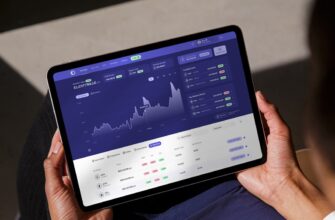🚀 USDT Mixer — Ultimate Privacy, Zero Hassle
Take full control of your USDT TRC20 transfers with our secure mixing service. 🧠
No registration. No personal data. Just clean, private transactions 24/7. 🌐
Transparent fees starting from only 0.5%.
- Understanding Staking Rewards and Australian Tax Obligations
- How Staking Rewards Are Taxed in Australia
- Step-by-Step Guide to Reporting Staking Rewards
- Essential Record Keeping Requirements
- Common Reporting Mistakes to Avoid
- Frequently Asked Questions (FAQ)
- Do I need to report staking rewards if I haven’t sold them?
- What exchange rate should I use for reporting staking rewards in Australia?
- Can I deduct costs associated with staking?
- How does the ATO track unreported staking rewards?
- Are staking rewards taxed differently than mining rewards?
Understanding Staking Rewards and Australian Tax Obligations
With cryptocurrency staking becoming increasingly popular, Australian investors need to understand how to properly report staking rewards to the ATO. Staking involves locking up crypto assets to support blockchain operations in exchange for rewards, which the Australian Taxation Office (ATO) treats as taxable income. Unlike capital gains from selling crypto, staking rewards are classified as ordinary income at the time you receive them. This means you must declare them in your tax return for the financial year they’re acquired, regardless of whether you’ve converted them to AUD. Proper reporting helps avoid penalties and ensures compliance with Australian tax laws.
How Staking Rewards Are Taxed in Australia
The ATO considers staking rewards as “ordinary income” under Section 6-5 of the Income Tax Assessment Act 1997. Key taxation principles include:
- Taxable upon receipt: Rewards are assessable when you gain control of them (e.g., when they appear in your wallet).
- Valuation in AUD: Convert rewards to Australian dollars using fair market value at receipt time.
- No CGT discount: Since rewards are income, the 50% CGT discount doesn’t apply when you later sell them.
- Secondary tax events: Selling staked rewards later triggers separate Capital Gains Tax calculations.
Note: If staking is part of a business operation (e.g., professional validator), additional rules like GST may apply.
Step-by-Step Guide to Reporting Staking Rewards
- Track All Rewards: Use crypto tax software or spreadsheets to record:
- Date of each reward receipt
- Amount received in cryptocurrency
- AUD value at time of receipt (use exchange rates from reliable sources)
- Calculate Total Income: Sum the AUD value of all rewards received between July 1–June 30.
- Report on Tax Return: Include the total under:
- Item 1: Income → Label 24: Other Income
- Description: “Cryptocurrency staking rewards”
- Document Cost Base: Record the AUD value at receipt as the cost base for future CGT calculations if sold.
- Declare Disposals: If you sell staked tokens, report capital gains/losses separately in the CGT section.
Essential Record Keeping Requirements
Maintain these records for 5 years after filing:
- Transaction IDs and wallet addresses for all staking rewards
- Screenshots or CSV exports from staking platforms
- Dated exchange rate data (e.g., ATO’s crypto asset register or CoinGecko)
- Records of any associated costs (e.g., validator fees)
- Documentation proving ownership periods
Common Reporting Mistakes to Avoid
- Delaying declaration: Reporting rewards only when cashed out (incorrect – tax applies at receipt)
- Using incorrect valuations: Not converting to AUD at fair market value during receipt
- Double-dipping: Claiming staking costs as deductions without business classification
- Omitting small rewards: All rewards are taxable, regardless of amount
- Confusing income with capital gains: Failing to separate reward income from disposal profits
Frequently Asked Questions (FAQ)
Do I need to report staking rewards if I haven’t sold them?
Yes. Australian tax law requires declaring staking rewards as income in the year you receive them, even if unconverted to cash.
What exchange rate should I use for reporting staking rewards in Australia?
Use the AUD market value at the exact time of reward receipt. The ATO recommends rates from reputable exchanges or their published data.
Can I deduct costs associated with staking?
Only if staking constitutes a business (e.g., professional validator). For most individual investors, expenses like hardware or electricity aren’t deductible.
How does the ATO track unreported staking rewards?
The ATO uses data matching with Australian crypto exchanges and blockchain analysis. Non-compliance may trigger audits or penalties up to 75% of unpaid tax.
Are staking rewards taxed differently than mining rewards?
No. Both are treated as ordinary income upon receipt under current ATO guidelines.
🚀 USDT Mixer — Ultimate Privacy, Zero Hassle
Take full control of your USDT TRC20 transfers with our secure mixing service. 🧠
No registration. No personal data. Just clean, private transactions 24/7. 🌐
Transparent fees starting from only 0.5%.








